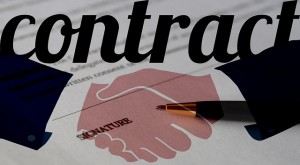Current U.S. Copyright Code (Title 17) stipulates that all new work, whether published or unpublished, is automatically protected by copyright as soon as it is fixed in a tangible form.
In most cases, copyright lasts for the life of the author/creator (or the longest living author, if it is a collective work) plus an additional 70 years. You can view exceptions to that rule on this quick reference chart on copyright terms.
The © symbol is no longer a requirement, although it still has value.
- Anybody can use the © symbol, even if they haven’t officially registered their work with the copyright office.
- It would be erroneous to assume a work with no © symbol is in the public domain.
Do you own copyright? (Your students do!)
Works for hire, or something you have created as part of your job, are typically owned by the employer.
- Work you create as an employee raises the question of who owns copyright in that product–you or the college/district? LRCCD Regulation 8333 §4.1 addresses this
- Also see section 27.4 in the LRCFT contract
- Do you, or do you plan to, publish your own academic work independent of the district? Explore Author Rights & the SPARC Author Addendum
Students also own copyright in the work that they create for your courses.
- Be specific when asking students for permission to use their work (when sharing it as an example to other students, for instance)
- If you have a student who is a minor, their parents also have a voice in this.
- Respecting students’ copyright teaches them to take their own work seriously and models proper respect for a copyright holder.
- Be aware of institutional policies, FERPA regulations (the Family Educational Rights and Privacy Act), and proceed by students’ wishes.
Permissions
Copyright is a bundle of exclusive rights owned by a creator. Permissions are pieces of that copyright ownership which may be licensed/shared by contract. As outlined in §106 of the Copyright Code, these permissions are comprised of the rights to:
- Reproduction (such as making copies for your students)
- Derivative works (as opposed to Transformative w/in Fair Use)
- Distribution (also handouts, or sale)
- Public Performance (physical or audiovisual)
- Display (static images)
- Performance (by means of digital transmission; specific to sound recordings)
What About Items In the Public Domain?
Continue to the next page to learn about Public Domain materials.
Copyright Home Basics Exemptions Creative Commons Fair Use
Finding Content Additional Resources
Disclaimer: The content of this page is presented for informational purposes only and is not intended to substitute for legal advice.
